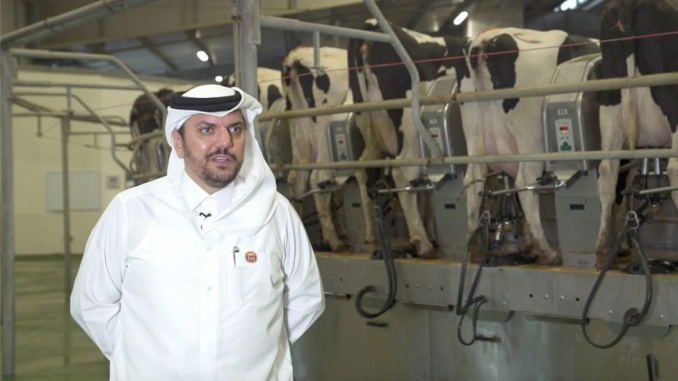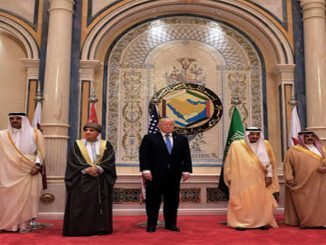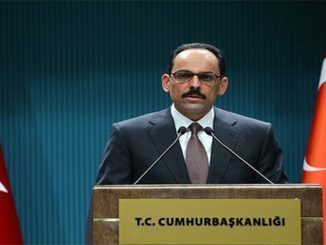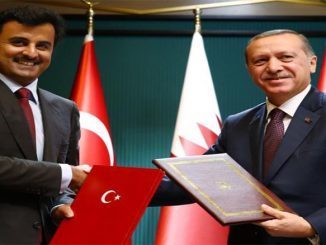
Qatar prospering under Blockade by Saudi Arabia, UAE, Egypt and Bahrain. A sea, air and land blockade the four Arab states imposed on independent-minded Qatar more than two and half years ago appears to have failed.
Now the feud, which has divided key U.S. allies and complicated President Trump’s ambitions in the region, might be strengthening the country of nearly 2.9 million people in the Arab Gulf, the Washington Times said in a report.
In June 2017, Saudi Arabia, the United Arab Emirates, Egypt and Bahrain moved to punish Qatar for what the allies said was support for a range of Arab opposition groups in the region, from dissident liberals to the conservative Muslim Brotherhood. Qatar’s diplomatic and trade ties with Iran, while Tehran was directly challenging Riyadh and Washington, were clearly the root of the tensions.
Qatar has refused to bow to the pressure, and International Monetary Fund forecasters now say Qatar’s annual growth rate in real gross domestic product will slightly outpace those of neighboring Saudi Arabia and UAE.
The gas-rich emirate has a sovereign wealth fund valued at $320 billion.
“We are not a poor country,” said Ahmed Al-Khalaf, CEO of International Projects Development Co., a food importer. “After Saudi Arabia closed the land border to trucks and the UAE prevented ships from sailing here from the container port at Jebel Ali, we could have flown in caviar by airplane and fed our people with that.”
The largely Sunni Muslim country will host the 2022 World Cup, and the quadrennial event is expected to be a bonanza for the construction and tourism sectors.
The wealth has helped Qatari leaders pursue a food self-sufficiency campaign while diversifying their trade relationships to replace Gulf neighbors that imposed the embargo. In 2018, American, Chinese, South Korean and other investors placed new bets on Qatar. Turkey, Iran, India and Pakistan rose in place of Saudi Arabia and the UAE as sources of imported consumer goods.
“We didn’t take the caviar route,” said Mr. Al-Khalaf. “Planes moved quickly to airlift vegetables, fruits, meat and the required dairy products. And at the same time, we stepped up investment in local food production.”
Qatar’s harsh climate, sandy soil and water scarcity challenge its food security, especially for growing vegetables. Mr. Al-Khalaf is tackling those issues at his company’s farm in Al Khor, where hydroponic greenhouses yield lettuce, mint, eggplant and tomatoes.
“Qatar is now meeting 30% of its requirements for vegetables, and if we can get full support from the government, we can make that 80% within three years,” said agronomist Fahd Bin Salah, whose farm has expanded from about 5 acres in 2017 to 74 acres today.
Self-sufficiency
The government has not released figures for the cost of its food self-sufficiency campaign, but the Qatar National Vision 2030 forecasts a state outlay of $16.4 billion for infrastructure and real estate investment over the next four years.
Before the blockade, Qatar imported about 60% of its pharmaceuticals from Saudi Arabia and the UAE and 80% of its dairy products from Saudi Arabia, according to the Ministry of Commerce and Industry in Doha.
“Ironically, their actions ended up encouraging us to build this dairy [industry], which we had up and running within five months,” said Ramez Al-Khayyat, 35, whose company, Power International Holding, is overseeing the construction of Khalifa International Stadium, one of the main venues for the World Cup.
Videos of the Al-Khayyat family’s “cow lift,” which brought the first 4,000 of the current herd of 20,000 dairy cattle in cargo planes, became an iconic image of Qatar’s resilience in the face of the blockade. The family’s Baladna dairy farm now meets 60% of Qatar’s needs. “Before 2017, it wouldn’t have been worth the marketing costs to compete with Saudi brands,” said Moutaz Al-Khayyat, Ramez Al-Khayyat’s brother and a co-founder of the dairy operation.
Aisha Al-Buainain, a 28-year-old Doha account manager and mother of two, said it is reassuring to be able buy Qatari-produced milk, yogurt and cheese.
“It’s hard to explain to people outside how hard it was for us emotionally that the blocking states did that to us during Ramadan,” she said, referring to the monthlong Muslim religious observance. “The supply situation is more than back to normal. What remains difficult is interruption of regular communications channels like WhatsApp and FaceTime audio. I can’t call my relatives in the Emirates on my iPhone.”
This winter, Qataris began to hope the embargo may be fading. Saudi Arabia, Bahrain and the Emirates sent soccer teams to Doha for Arabian Gulf Cup games in December, effectively violating their own travel ban. In a symbolic move last week, the UAE agreed to resume postal services with Qatar. Indirect services resumed Feb. 9 with mail transported to Qatar via Oman, the Reuters news agency reported.
The Trump administration, which has forged a close alliance with Saudi Arabia but has been rebuffed repeatedly in efforts to settle the regional feud, sent Treasury Secretary Steven T. Mnuchin to the Doha Forum in December. He praised Qatar for combating illicit financing of terrorism.
“We hope they can work out their issues amongst themselves because I do think there are bigger regional security issues that everyone needs to be unified on,” Mr. Mnuchin told forum attendees.
The U.S. drone strike that killed Iranian Gen. Qassem Soleimani on Jan. 3 benefited Qatar diplomatically. It is one of the few countries with cordial relations with Iran, the Arab Gulf states and the Trump administration.
“After the Soleimani killing, even Saudi Arabia wanted to de-escalate with Iran,” said Giorgio Cafiero, head of Gulf State Analytics, a Washington business and security consultancy. “Qatar’s role as a mediator no longer looks like such a terrible thing. The Saudi leadership knows it needs to reprioritize, and the time has come for finding new and pragmatic strategies to deal with real security dangers rather than throwing resources at fabricated threats such as Qatar.”
Saudi Arabia was feeling the pinch of the blockade too, Mr. Cafiero said. Desperate to diversify the economy amid low oil prices and an uncertain fossil fuel future, Saudi leaders have been wooing global investors to boost their domestic economy.
“Their neighbors in Qatar could be doing that instead of buying more real estate in Western capitals or shares in international airlines,” Mr. Cafiero said.



